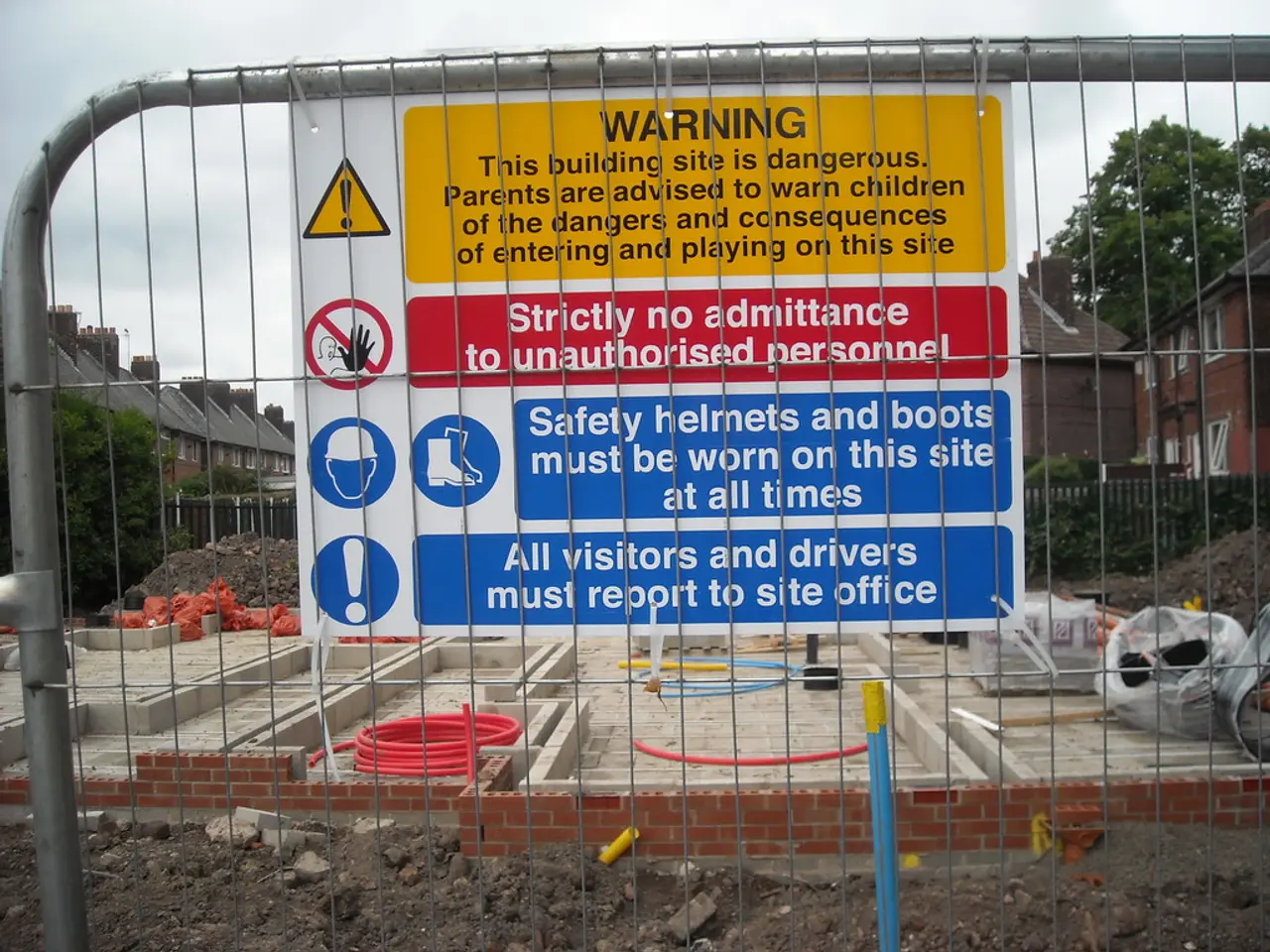Exploring the Intricacies of Industrial Site Assessments in Corporate Takeovers
In the realm of business acquisitions, particular attention must be paid to deals involving large-scale manufacturing or infrastructure projects on land allotted by State Industrial Development Corporations (SIDC). Dinesh Babu Eedi and Kumar Panda, Partners and Principal Associate respectively at Lakshmikumaran & Sridharan attorneys, highlight the importance of comprehensive land due diligence in such transactions.
The Right to Fair Compensation and Transparency in Land Acquisition, Rehabilitation and Resettlement Act, 2013 (LARR Act) imposes extensive rehabilitation and compensation obligations on the acquirer. This Act is a crucial aspect of land due diligence, as the acquirer must verify if the land is being used according to the public purpose stated under the LARR Act.
Verification of land title and allotment documents is essential to ensure the authenticity and legal validity of the land allotment granted by the SIDC. It is crucial to confirm land ownership, ensure the transferability of land rights according to terms set by the SIDC and any applicable state laws.
Land use, zoning, and regulatory compliance are also key considerations. The land’s designated use should align with the intended manufacturing or infrastructure project, and zoning approvals, land use permits, and development plans should comply with local and state regulations, including any special industrial zoning rules of the SIDC.
Environmental and social due diligence is equally important. Potential risks from environmental liabilities or community/social issues linked to the site are often significant for large projects. Assess environmental restrictions and compliance with environmental norms to identify any potential issues.
Infrastructure and utilities assessment is another critical step. Evaluate the availability and adequacy of infrastructure such as utilities (water, power, sewage), transport connectivity, and any infrastructure support promised by the SIDC. Verify existing encumbrances or easements affecting the use of land and infrastructure.
A thorough legal and contractual review is necessary. Inspect related legal documents, including lease agreements (if not outright ownership), encumbrance certificates, liens, litigation history, and compliance with SIDC allotment conditions. Verify if any approvals or consents are needed from the SIDC or other authorities on assignment or sub-leasing of the land.
A financial assessment is also required. Review any cost obligations related to the land allotment such as development charges, stamp duties, taxes, or outstanding dues to SIDC. Understand terms related to payment, penalties, or forfeitures under the allotment agreement.
Operational fit and risk analysis are crucial for informed decision-making. Confirm how the land and facilities integrate with operational requirements, supply chain, and planned production capacity. Consider risks such as project delays due to land disputes, regulatory hurdles, or environmental clearances.
On-site physical inspection is the final step. Conduct thorough site visits to verify land condition, boundary surveys, check for illegal occupation or encroachments, and evaluate readiness for construction or manufacturing.
Given the complexity of allotments made by SIDCs, due diligence should be tailored to capture both usual commercial risks and specific regulatory frameworks governing industrial land allotments by state entities. This comprehensive approach ensures informed decision-making and minimizes land-related risks in acquiring companies with large-scale manufacturing or infrastructure projects on SIDC land.
Any deviation from the statutory process or pending litigation under the LARR Act must be flagged during due diligence. Construction activity, extraction of water, or alteration of natural boundaries in or near water bodies can result in regulatory action. It is essential for acquirers to review all original allotment terms and secure necessary approvals before closing.
Non-compliance with conditions in lease deeds, sale deeds, or allotment letters, such as prior consent for transfer or change in control, may lead to cancellation of the allotment or repossession of the land. The LARR Act is an essential tool for comprehensive land due diligence in business acquisition transaction deals.
In conclusion, thorough land due diligence is crucial for acquirers to assess legal ownership, identify regulatory and contractual restrictions, and anticipate risks. By following this comprehensive approach, businesses can make informed decisions and minimise potential land-related risks in large-scale manufacturing or infrastructure projects on SIDC land.
The LARR Act, which includes extensive rehabilitation and compensation obligations, is a crucial aspect of land due diligence for acquirers, as they must verify if the land is being used according to the public purpose stated under the Act.
Verification of land title and allotment documents is essential to ensure the authenticity and legal validity of the land allotment, particularly when dealing with industry, finance, and business transactions on SIDC land.




